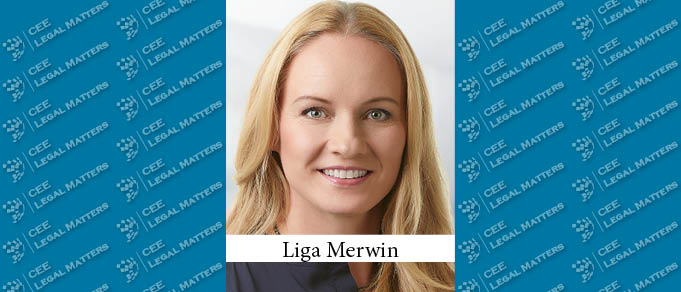The energy crisis has a pivotal role in Latvia’s political agenda, with the government focusing on investments in onshore and offshore energy projects and legislative packages to mitigate the crisis-related outcomes, according to Ellex Managing Partner Liga Merwin.
"Summer is always an exceptional time – even with the geopolitical situation and its influence on the region, the past few months have been rather slow," Merwin begins. "Still, the absolute highlight of our situation is the energy crisis. In Latvia, there are huge efforts to reach energy efficiency by supporting the launching of solar parks and alternative energy sources." According to Merwin, there is a huge interest in energy from potential investors, including funds from the US and all over Europe.
Merwin says that, traditionally, Latvia has always had a high number of hydropower plants. "In good years, these plants could satisfy all internal consumption needs, therefore the government was reluctant to push towards other types of renewables. In light of the current challenges, this attitude has changed – now the government aims to focus on potential investments in onshore and offshore wind and solar parks so that we have energy independence even during subpar years, or when facing acute challenges," she notes. "The government recently established a company to undertake onshore wind park projects. This is a joint venture between the state-owned electricity utility Latvenergo and the Latvian state forest management company. We’re also developing an offshore wind park in the Baltic sea, together with Estonia, and the government is looking to support the building of an LNG terminal near the coast."
Merwin points out that – despite the general developments at the EU level such as the digital market and platforms regulations – from the local perspective, the major legislative activities are related to mitigating the energy crisis-related consequences for businesses and individuals. "The government is to adopt initiatives targeting businesses, making sure that they have easier access to funds and investing towards energy independence," she adds.
"Additionally, this is an election year in Latvia and there are concerns about geopolitics," Merwin says. "Similar to other countries, we have concerns about populist political parties, which already got a large share of seats in the Saeima four years ago. There is also the issue of potential election fraud, including disinformation on major social media platforms. Major institutions are focused on ensuring the fairness of elections and making sure that, given the geopolitical pressure, no other powers undermine the country's sovereignty. Unfortunately, we have a small share of conspiracy theorists and other extremists who are looking to cast doubt on the validity of the elections and the democratic system as a whole, just wanting to 'tear it all down'." Moreover, Merwin notes, the current government is not necessarily business sector-oriented, having a primarily technical or bureaucratic background. "We need more efficient measures to boost the economy, especially considering the damage done by the pandemic and war," she says.
"In other news, inflation is definitely a concern for our firm. We renegotiated most of our contracts, even before the war in Ukraine, because we saw the market changing. We’re now looking at ways to support our staff through what looks like a difficult winter ahead," Merwin says. "And inflation has been very difficult for the construction sector, where we expect a large number of disputes. Many projects are on hold – everything seems almost to be stagnating because it is hard to renegotiate contracts and price increases. Hopefully, this will all be resolved in the coming months," she concludes.
